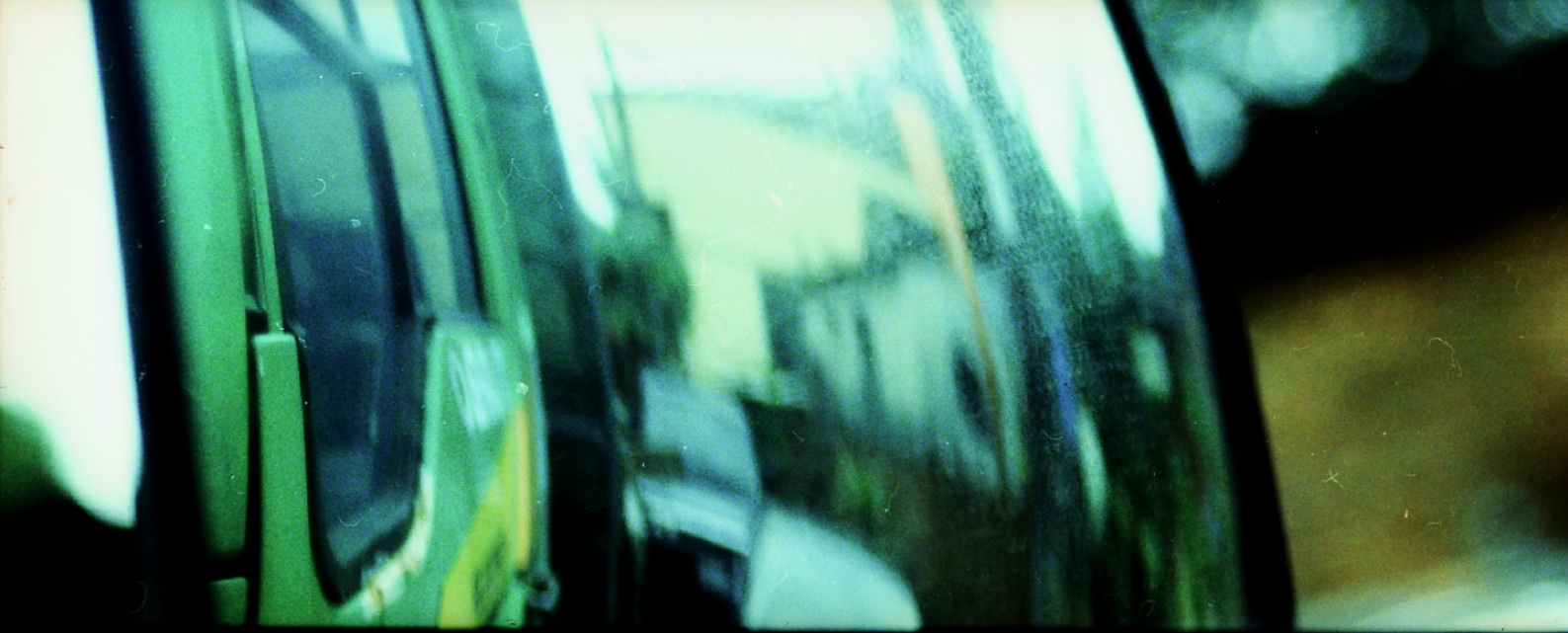I’m telling them about 12th Avenue, by way of the microphone. “Okay here’s 12th Avenue, 12th, good for Youth Services, Labor Union Hall, King County Recovery. First stop for Seattle University.” Part of me wants to announce the Arco gas station and the new Korean place, but I hold my tongue.
A Central District resident sitting up front leans forward. “Does the, does the, does the,”
“Yeah?”
“Does the thing not work, what is it called, the system? Does the system not work? What’s it called?”
“The system, yeah.” This older gentleman and I are inbound on the 4, coming from the Center Park. He’s talking about the automated voice announcer, which actually does have a name designation (“Kate;” as opposed to “Fred,” the voice type used on Radiohead’s Fitter Happier). “Oh well, it does, but I mean, I like to,”
“That’s cool.”
“–like to do it myself.”
“Like cards.”
“Yeah?”
“Yeah, everybody now sends emails, or texts, but I like to still go to the store and get a card, send it out in the mail.”
“Yeah, the personal touch.”
“Yeeaah.”
“I feel like it’s important, you know? Th’ personal service, the personal touch.”
“It means so much more. I send out a letter, and people really,”
“Oh, it makes a difference. It’s such a bigger gesture.”
“It’s huge. Man, I’m so glad you think that way. I wish everyone was like you!”
He laughs. “Well, yeah, I just, for me, like, I got this issue with the IRS right now. That’s fine. But they give me the option of I could
call this number and talk to this person, or I could call this number, or this other one… I prefer just to go into the office and talk to somebody one on one.”
“In person.”
“Yeah.”
“Less hassle!” I think about adding, “if you’ve got the time.” Curious, how busyness in life seems to account for or exacerbate nearly all life problems. As with the bus, which day after day I realize is such an apt metaphor for life at large, I get so much less out of the experience if I’m hurrying. Out loud I say, “it’s easier, and it’s also,”
“Like my bills. I know I could pay my bills on the phone, or with the card, but I go down there in person. Because it gets me out the house, I go and there’s people there… that’s life.”
“That’s life happening, exactly! Livin’ life, talkin’ to people. Never know who it might be. I still bust out a handwritten letter every–”
“Aw yeah, me too!” Fistpound. Definitely the only fistbump I’ve had pertaining to handwritten letters! He says, “Check it out. I write my dad a letter every year for his birthday? He LOVES it.”
“I bet he does! I know I would!”
“Alright now.”
The doors are already closing, but we can still just barely hear each other saying, “good talkin’ to you!”
“Good talkin’ to you too!”
This fellow was older, but I’ve noticed it isn’t only the older generations who thrive on the tactile. It’s ingrained in some of us, no matter our age or background, a certain hunger pushing us toward the pulsing immediacy of reality. Who after all wants a life half-lived, all secondary stimuli, with no wildcards thrown in for good measure? This whole thing is a curveball, life. We may as well grab it by the horns.
Nathan Vass is an artist, filmmaker, photographer, and author by day, and a Metro bus driver by night, where his community-building work has been showcased on TED, NPR, The Seattle Times, KING 5 and landed him a spot on Seattle Magazine’s 2018 list of the 35 Most Influential People in Seattle. He has shown in over forty photography shows is also the director of nine films, six of which have shown at festivals, and one of which premiered at Henry Art Gallery. His book, The Lines That Make Us, is a Seattle bestseller and 2019 WA State Book Awards finalist.



